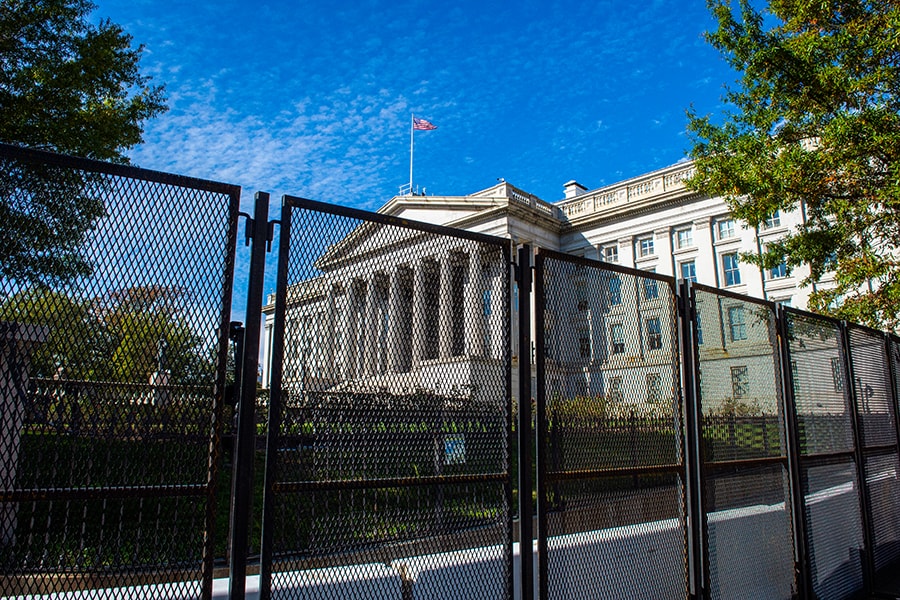
Russian hackers break into US federal agencies, US officials suspect
Several said a series of national security-related agencies were also affected, though it was not clear whether the systems contained highly classified material
 The building of the US Treasury Department can be seen behind the fence that provides extensive security for the White House. Photo: Andrej Sokolow/dpa (Photo by Andrej Sokolow/picture alliance via Getty Images)
The building of the US Treasury Department can be seen behind the fence that provides extensive security for the White House. Photo: Andrej Sokolow/dpa (Photo by Andrej Sokolow/picture alliance via Getty Images)
The Trump administration acknowledged Sunday that hackers acting on behalf of a foreign government — almost certainly a Russian intelligence agency, according to federal and private experts — broke into a range of key government networks, including in the Treasury and Commerce departments, and had free access to their email systems.
Officials said a hunt was on to determine if other parts of the government had been victimized by what looked to be one of the most sophisticated, and perhaps among the largest, attacks on federal systems in the past five years. Several said a series of national security-related agencies were also affected, though it was not clear whether the systems contained highly classified material.
The Trump administration said little in public about the hack, which suggested that while the government was worried about Russian intervention in the 2020 election, key agencies working for the administration — and unrelated to the election — were actually the subject of a sophisticated attack that they were unaware of until recent weeks.
“The United States government is aware of these reports, and we are taking all necessary steps to identify and remedy any possible issues related to this situation,” John Ullyot, the spokesperson for the National Security Council, said in a statement. The Commerce Department acknowledged that one of its agencies had been targeted, without naming it, and the Department of Homeland Security’s cybersecurity agency, whose leader was fired by President Donald Trump last month for declaring there had been no widespread election fraud, said in a statement that it had been called in as well.
The Commerce Department acknowledged that one of its agencies had been affected, without naming it. But it appeared to be the National Telecommunications and Information Administration, which helps determine policy for internet-related issues, including setting standards and blocking imports and exports of technology that is considered a national security risk.
©2019 New York Times News Service




